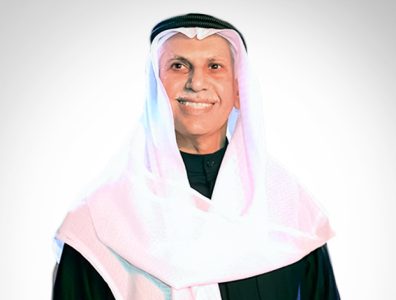Progress towards a clear renewables agenda in Kuwait
Mubarak Naser Al Sayer, CEO of the ALSAYER Group, talks to Business Dunes about pursuing opportunities in emerging technologies and the growing appetite among Kuwaiti banks to finance renewables projects. The ALSAYER Group conducts business in the industrial, automotive, energy and finance sectors, among others.
How do you assess Kuwait’s renewable energy targets, and what role can ALSAYER play in this journey?
There is new energy and vision in Kuwait’s government. With the recent cabinet changes and the leadership of H.H. Mishal Al Ahmad A Jaber Al Sabah, there is now a much clearer agenda for sustainable advancement in energy and related sectors. We are finally seeing ministers in key sectors such as oil and gas, power and water being given more defined responsibilities to execute Kuwait’s clean energy goals.
What is especially encouraging is the emerging collaboration between the government and the private sector. We are being called on not just to invest, but to help bring in foreign expertise. This kind of partnership is long overdue. The private sector in Kuwait is ready and eager to contribute. Previously, the internal dysfunction, whether political or procedural, made it nearly impossible to act with any speed. But today, I am genuinely optimistic about the pace and direction of progress.
ALSAYER has a long-standing relationship with Toyota. How are you leveraging it to develop sustainable transportation alternatives?
Our work with Toyota, especially in electric and hybrid vehicles, is just one piece of our broader sustainability goals. We see immense value in introducing efficient technologies across infrastructure, residential complexes and commercial developments. There is a global wealth of proven technologies that reduce energy consumption and cut pollution, and Kuwait can benefit greatly from them.
EV [electric vehicle] technology itself has come a long way. New models can now endure Kuwait’s extreme temperatures, with better battery range and improved cooling systems. But there are still many hurdles. We need more charging stations in homes, malls and commercial areas.
There are serious concerns about battery disposal, resale values and affordability. And consumers here face a unique situation: petrol and electricity are very cheap. One litre of petrol is just 100 fils [USD 0.33]. That’s the same price as a small bottle of water. So, unless the government provides real incentives, the average Kuwaiti won’t switch.
What is needed from the government to support the transition to green technologies?
Until recently, even installing solar panels was restricted. We have had our own struggles with projects that couldn’t get approved because the Ministry of Electricity & Water & Renewable Energy wasn’t able to provide the necessary clearances. This stalled our plans for new facilities, including showrooms and garages.
Thankfully, the landscape is shifting. Now, if a private entity can generate power through solar or wind, that frees up grid electricity for the government to allocate elsewhere. Across our current sites, we have a total installed solar capacity of 1.35 MW, generating approximately 2 GWh of clean energy annually, and the new installation at our Body & Paint Workshop will add 1 MW, probably by the end of 2025.
This benefits both sides. For us, it is long-term savings. For the government, it means cost-effective grid management. Crucially, regulatory reforms are underway that will allow more freedom for Kuwait’s public and private stakeholders to drive progress together.
Do you see a role for ALSAYER in making Kuwait’s oil and gas sector more sustainable?
We used to think that was possible. Unfortunately, our early efforts were met with resistance. The ideas were there – solar, tidal and wind – but getting government buy-in was frustrating. There were too many decision makers who lacked the global perspective needed to recognise the benefits.
We found it extremely difficult to navigate the politics of introducing foreign players and technologies. That’s why we shifted our focus away from directly trying to influence the sector. Unless the mindset changes among public officials, it will be hard to move forward. But we hope that will change.
ALSAYER holds a 10% stake in Warba Bank, which just issued green sukuk (Islamic bonds). How do you see green finance evolving in Kuwait?
The private sector and banking institutions in Kuwait are increasingly aligned with sustainability goals. Warba Bank’s launch in 2024 of its USD 500-million green sukuk for renewables and water treatment projects is a good example of this new direction.
What is happening now is that banks, with the government’s support, see these projects as low-risk, high-return opportunities. They are competing to finance clean energy and infrastructure upgrades. And this is not limited to Kuwait – they’re looking regionally and internationally.
Looking ahead, where do you see the biggest opportunities for ALSAYER?
The world keeps changing. In the ‘90s, telecoms were the big thing. Now, it’s AI, cybersecurity and medical robotics. We want to be involved in these areas too. AI in medical tech and next-gen satellite connectivity are on our radar. These new pillars will complement our core industries of automotive, energy, finance and real estate.
To other CEOs, I say: train your people, plan for succession, understand the market and protect your business. Governments and the private sector must collaborate closely. Frequent leadership changes in public office disrupt continuity, which slows progress. With a consistent, unified vision, Kuwait can move like a river, smooth and unstoppable.


